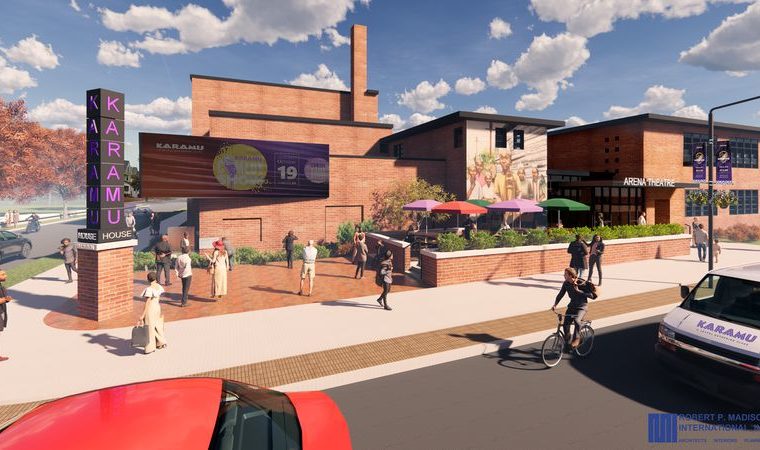Table Of Content

Karamu house remains a community-based non-profit arts and education institution and has continued to keep history alive with its commitment to preserve Black culture. The company was best known for its performances of Shakespearean classics, ballets, comedies, and original work by Brown (The Drama of King Shotaway). It was eventually shut down by city officials after rival companies orchestrated disturbances of productions in an effort to harass and sabotage the African Grove's success. Theatre and performance is a cathartic escape for everyone, but Black Americans were not always included fairly in that vision. Since the early 19th century, Black people were impersonated by white performers on stage through racist stereotypes in vaudeville and minstrel shows, creating offensive caricatures of Black people using blackface for the enjoyment of white audiences. Karamu’s story begins with Russell and Rowena Jelliffe, who founded what was originally called the Neighborhood Association but was later named Karamu House.
History
Following a fire which destroyed the theater in 1939, Karamu was eventually rebuilt in 1949, through the aid of LEONARD HANNA, JR., and the Rockefeller Foundation as a 2-theater complex at E. Facilities were also provided for Karamu's noteworthy programs and classes in dancing and the visual arts. Led in the 1950s by such professional staff members as Benno Frank and Reuben Silver, Karamu gained a reputation as one of the best amateur groups in the country. With the rise of Black Nationalism in the 1970s, however, it embarked upon a controversial course which promoted theatrical presentations primarily by blacks about the black experience and its attempt to form a professional acting company in 1982 proved unsuccessful. In 1980 Marjorie Witt Johnson, together with Karamu artistic director Linda Thomas Jones, founded the Imani African American Dance Co., a troupe which danced to African drum beats, reminiscent of the original Karamu Dancers. Today, karamu’s mission is to produce professional theatre, provide arts education, and present programs for all people while honoring the african american experience.
Karamu House’s five-show 2023-24 season to kick off with Lynn Nottage’s ‘Clyde’s’
KARAMU HOUSE is a neighborhood settlement that became nationally known for its dedication to interracial theater and the arts. 38th St. in 1915 by 2 young white social workers, ROWENA and RUSSELL JELLIFFE, with the support of the Second Presbyterian Church, but it soon was popularly known as the Playhouse Settlement. As an entry into community life, the Jelliffes began producing plays with interracial casts in 1917. Their affiliation with the church ended in 1919, when they incorporated as the Neighborhood Assn.
Arts and culture generate millions for Cuyahoga County economy - Signal Cleveland
Arts and culture generate millions for Cuyahoga County economy.
Posted: Thu, 12 Oct 2023 07:00:00 GMT [source]
It Happened in Atlanta
Dancers, printmakers, actors, and writers all found a place where they could practice their crafts. The Jelliffes held high standards of excellence in the arts, not for the sake of excellence, but because they knew that pursuing excellence makes the greatest demands on the individual to fulfill the promise of his potential. The Playhouse Settlement became an active contributor to the Harlem Renaissance, and Langston Hughes roamed the Settlement’s halls constantly. The first stop of Raisin in the Sun off of Broadway was right on this stage, said Sias. Famous people like Muhammed Ali was one of many who enjoyed the countless performances. Rechristened the “Playhouse Settlement,” it quickly became a magnet for some of the best African-American artists of the day -- actors, dancers, printmakers and writers all found a place where they could practice their crafts.
It Happened In Atlanta
With the rise of Black Nationalism in the 1970s, the theatre decided to focus its storytelling around the Black experience in America. It was later unsuccessful in its attempt to become a professional acting company. The cultural beacon of Black theatre, the African Grove Theatre’s opening in 1821 birthed a space of creative refuge in the midst of slavery and systemic oppression. The New York City theatre, founded by West Indies native and playwright William Alexander Brown, opened six years before the final abolition of slavery in New York State and is considered the first Black theatre in the United States. The Playhouse Settlement quickly became a magnet for some of the best African-American artists of the day.
Karamu House - Cleveland, Ohio

Known as the last remaining theatre in Los Angeles dedicated to the Black community, the Lincoln Theatre began its legacy in 1927 with live performances, movie screenings, and vaudeville for 2,100 patrons. It was often revered as the “West Coast Apollo” after Harlem’s Apollo Theater, with the two often hosting the same or similar acts. The renowned Apollo Theater did not start off as a creative space for Black Americans. First owned by Sidney Cohen and then obtained by Benjamin Hurtig and Harry Seamon in 1914, the theatre was originally home to burlesque shows under the name Hurtig and Seamon’s New Burlesque Theater. Similar to many public and private spaces in America, Black people were denied entry to the theatre. To celebrate the theatres that paved the way for Black creatives, Playbill shares the history of some of the country’s iconic Black theatres that contributed towards propelling diverse and equitable storytelling to the forefront.
Welcome to Cleveland’s AsiaTown
Karamu has given African Americans a vehicle for the expression of their work. Moreover, their theatrical productions have raised awareness of black lives, the black experience, and an awareness of black heritage. Although racial themes were addressed In Abraham’s Bosom and Stevedore, perhaps no theatrical productions at Karamu in the interwar years outshone Langston Hughes. Hughes was a poet, actor, and playwright, who was born in Joplin, Missouri, but also lived in Cleveland and New York during the era of the Harlem Renaissance. He was one of the most talented playwrights of his time and was significant in the evolution of Karamu as a theater and a force for social change.
Uncovering Langston Hughes's Legacy in Cleveland, Ohio - AFAR - AFAR Media
Uncovering Langston Hughes's Legacy in Cleveland, Ohio - AFAR.
Posted: Wed, 25 Oct 2023 07:00:00 GMT [source]
Asian Art Exhibits Now at Cleveland Museum of Art
Reflecting the strength of the Black influence on its development, the Playhouse Settlement was officially renamed Karamu House in 1941. Karamu is a word in the Swahili language meaning “a place of joyful gathering.” It became a place where families could gather, share stories, feast, and enjoy. It’s been approximately 14 years since I last directed a play by my brother and friend Michael Oatman. In It Happened in Atlanta by Michael Oatman, we get to explore the different ways that “Black Love” tries to find its way in the world.
People of color have survived a myriad of terrible experiences, despite our American proclamations of commitment to equality. Karamu, offered its audiences, who are people of all backgrounds, to see the integration of African Americans through art. Most importantly, plays produced by Karamu were salient in their contributions to give black people freedom of expression and produce offerings from a Black person’s perspective. Such artistic contributions demonstrate to the public the truth of the reality of black people’s lives and their humility, suffering, and discrimination.
Founded in 1915 by two white social workers, Russell and Rowena Jelliffe, it opened as a settlement house, named the Neighborhood Assn., on E. 38th St., in an area then known as Cleveland’s “Roaring Third” -- home to bars, brothels, flophouses and gambling dens. Karamu in Swahili means “a place for joyful meeting,” a name that has been effortlessly embodied in the work of the theatre. However, as Black performers began to take the stage, many challenged these stereotypes by creating unique performances that displayed their own authentic talents, taking hold of their own stories within performance spaces that honored their experiences. However, with the rallying support of the Cleveland community and notable funders—and under the leadership of Tony F. Sias, President + CEO—Karamu House is experiencing its own renaissance of sorts. The Neighborhood Association, or Playhouse Settlement as it was also known, developed as part of a broader movement known as the Harlem Renaissance, which occurred in the 1920s as African Americans came north for better opportunities.
Tucked away in the Fairfax neighborhood just east of Downtown Cleveland and near the Cleveland Clinic is one of Cleveland’s historic cultural institutions, Karamu House and Theatre. It’s known as the oldest Black theatre company in the U.S. and has been an incubator for some of the country's most well-known Black artists since its opening in 1917. Perhaps most notably, playwright and poet Langston Hughes saw a number of his plays debut here.

No comments:
Post a Comment